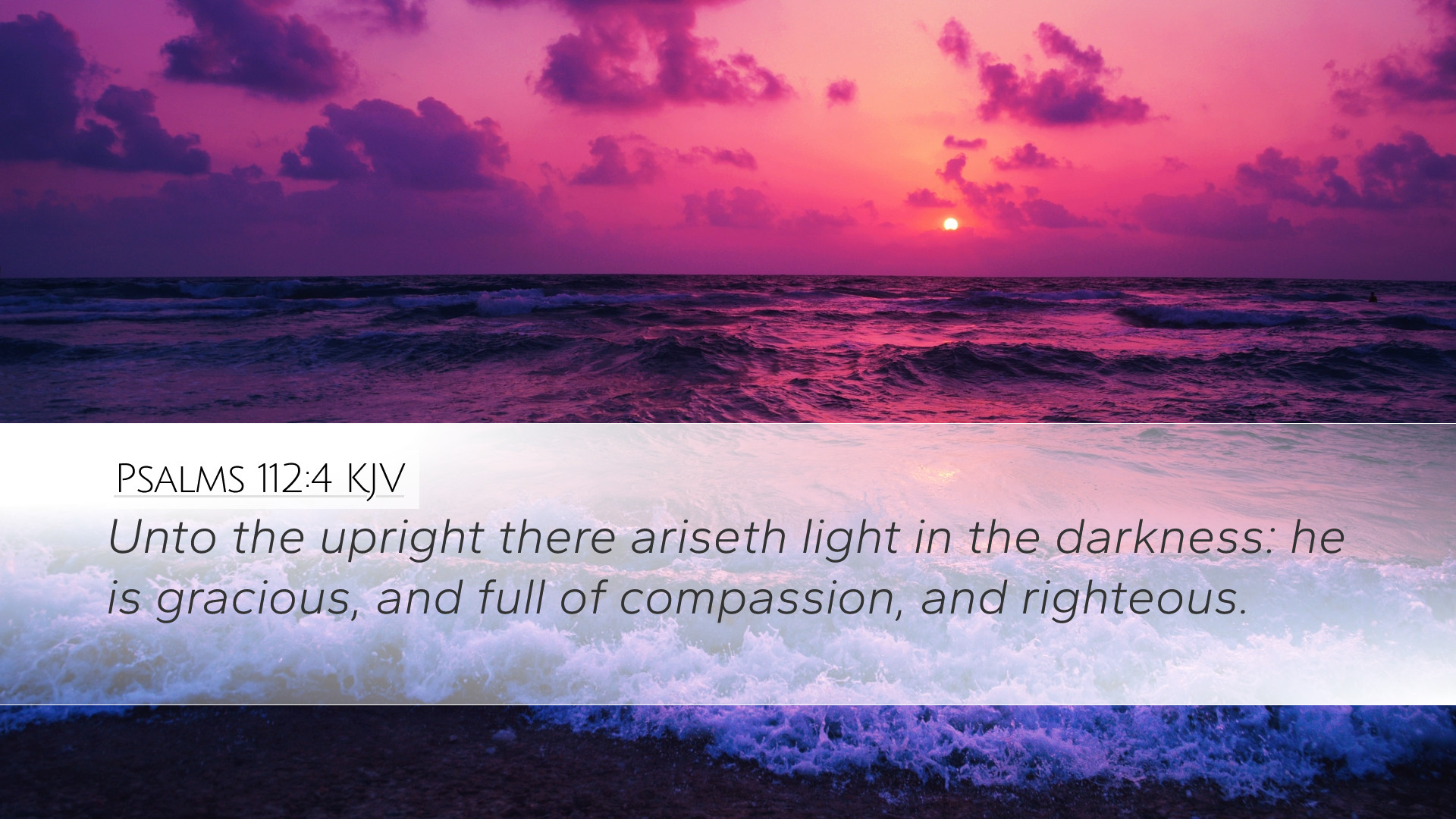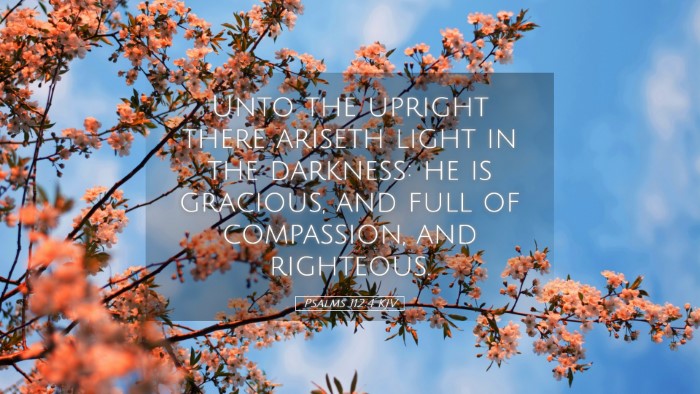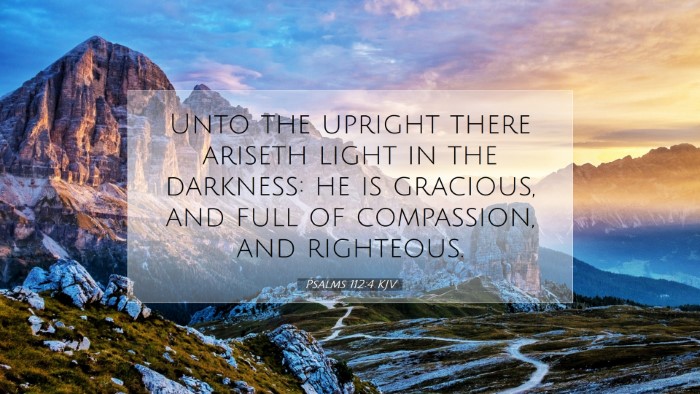Commentary on Psalms 112:4
Psalms 112:4 states: "Unto the upright there ariseth light in the darkness: he is gracious, and full of compassion, and righteous." This verse encapsulates profound themes regarding divine providence, moral integrity, and the character of the righteous man. In this commentary, insights from several public domain sources, such as Matthew Henry, Albert Barnes, and Adam Clarke, will be synthesized to provide a comprehensive exploration of its meaning.
Contextual Background
The Book of Psalms, well known for its poetic nature, serves as a profound reflection of the human experience in relation to God. Psalm 112 is a didactic psalm that extols the virtues and blessings upon the upright, contrasting their fate with that of the wicked. Understanding this context is crucial for interpreting verse 4, which speaks to the light that shines upon the righteous amid adversity.
Understanding the Light in Darkness
Matthew Henry interprets the “light” mentioned in this verse as a symbol of divine favor and guidance. He notes that for the upright, challenges and trials do not obscure their hope, but rather illuminate the path forward. The phrase “arises” suggests that this light is not a constant presence; instead, it appears at the right time, providing clarity and direction. This highlights God's active role in the lives of the faithful, showing that even in dark times, believers are not left without hope.
Albert Barnes contributes to this understanding by emphasizing that the “darkness” represents life's trials and tribulations. He writes that it is during these moments that the righteous experience God's grace. This assertion reminds believers that hardships serve to strengthen their faith—a recurrent theme in Scripture.
The Character of the Righteous
Continuing from the illumination of the righteous, the latter part of the verse describes the upright as “gracious, and full of compassion, and righteous.” Adam Clarke provides an enlightening examination of these attributes. He explains that “gracious” refers not only to the kindness shown by the righteous but also to their ability to reflect God’s grace towards others. This is both a divine and moral attribute.
Furthermore, the term “full of compassion” implies a deep-seated empathy for the suffering of others. It is an active compassion that leads to action, distinguishing the upright as not only self-righteous but also socially responsible. Clarke’s emphasis on the righteous being “righteous” reinforces the idea of uprightness being a prerogative of living in alignment with God’s laws and principles.
Practical Applications
The implications of this verse are profound for contemporary audiences, especially for pastors, students, theologians, and scholars. The following applications can be drawn:
- Hope in Adversity: Just as light rises in darkness for the upright, believers today can be encouraged that their faith will guide and sustain them through difficult times.
- Moral Integrity: The character of the righteous serves as a model for Christian living, emphasizing the importance of graciousness, compassion, and righteousness in our day-to-day interactions.
- Reflecting God’s Attributes: The verse compels believers to reflect God's character in their lives. Emulating these traits can impact both personal and communal relationships.
- Encouragement for Ministry: For pastors and church leaders, this psalm highlights the need to cultivate environments that encourage compassion and righteousness among congregants, thereby fostering spiritual growth.
Theological Reflection
On a theological level, this verse draws attention to the covenantal relationship between God and His people. The light that arises for the upright is a reflection of God's faithfulness and His promise. The righteous are not only promised guidance but are called to embody the attributes of God, contributing to a community that honors His character.
Psalms 112:4 serves as a poignant reminder of the dual nature of the believer's journey—while they will encounter darkness, they also have the assurance of God's faithful provision of light. This assurance feeds into the larger narrative of scripture that reveals a God who cares deeply for the righteous and empowers them to reflect His glory in a world often shadowed by sin and despair.
Conclusion
In conclusion, Psalms 112:4 offers rich insights into the life of the upright and the character of God. By synthesizing various perspectives from renowned biblical commentators, we gain a deeper understanding of the interplay between divine provision, moral integrity, and the assurance of hope amidst trials. For the contemporary believer, this verse not only provides comfort but also challenges us to embody the gracious and compassionate nature of our Creator.


